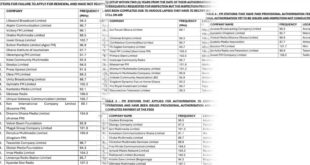A nine-member Supreme Court review panel has dismissed an application by John Mahama in the ongoing election 2020 petition seeking review of the decision of the court that dismissed an initial application asking permission to serve interrogatories (12 questions) on the Electoral Commission (EC).
After nearly two hours of arguments from the lead lawyer of the petitioner ( Tsatsu Tsikata) and lawyers of the respondents (Justin Amenuvor for the EC – 1st Respondent; and Akoto Ampaw, for President Akufo-Addo – 2nd Respondent), the apex court ruled that the petitioner did not meet the high threshold set by article 133 (1) of the 1992 Constitution.
Background
Mahama’s lawyer, on 19 January 2021, moved a motion praying the court for leave to serve certain questions on the Electoral Commission (Application for Interrogatories) which he claimed if answered would narrow down the issues before the court.
The former president in the application wanted the EC to answer among others, questions relating to the processes involved in the transmission of results from the polling station level, to the constituency level, to the regional offices of the EC and subsequently to the Returning Officer of the presidential election, Jean Mensa, at the EC office.
He also sought to solicit responses on whether or not the National Communications Authority (NCA) in any way facilitated the transmission of results from the various centres to the national headquarters of the EC.
The EC through its lawyer, Justin Amenuvor, opposed the application urging the court not to grant it as it did not raise any relevant issues that were in contention. It was the case of the EC that the answers being sought by the petitioner were already contained in their own petition and the responses of the respondents.
The court after going on recess for about 45 minutes reconstituted and ruled that the application for interrogatories by the petitioner were not grounded in law and that same is in contravention of the rules that govern adjudication of the election petitions (CI 99) which is the main issue before the court.
The application was dismissed on the ruling of the Chief Justice on 19 January 2021.
About the supplementary application
Mr. Mahama’s legal team, led by Tsatsu Tsikata had asked the court to review its earlier ruling dismissing questions [interrogatories] the petitioner wanted to ask Jean Mensa.
The team subsequently filed another application to replace portions of the original statement of case, as well as file a supplement to their statement of case requesting for the review.
Mr. Mahama’s legal team insisted that the court will be provided with further information if the application was granted.
The application sought to replace paragraph 28 of the original statement of case and file a supplement to the statement of case.
Paragraph 28 of the petitioners’ initial review document states among others that “there is no reference in rule 69(c) 4 of CI 99 to amendments. It is rather 69 A (6) which provides as follows.”

In the proposed new paragraph “it rather” quotes 68(7) instead of the 69A(6) as earlier quoted.
The lead counsel for the petitioner, Tsatsu Tsikata earlier in court outlined series of cases where the court allowed for supplementary statement of cases in both review and appeal applications.
But counsels for the first and second respondents opposed the request on the basis that the review jurisdiction of the court does not allow for a supplement of case to a review application as the case is in its appellate state.
Mr. Tsikata, however, insisted that his readings on the rules of the review jurisdiction and past rulings of the court give the court the power to grant the application.
The nine-panel of judges threw out the supplementary application and proceeded to hear the review application.
Below are excerpts of the ruling:
“We have considered the submissions canvassed for and in opposition for this application. We notice that this application before this court is brought under the inherent jurisdiction of the court to file additional grounds of review and replace paragraph 28 of the original statement of the case and to file a supplement to the statement of the case. The application which was argued before us is not sanctioned by any provisions in C.I. 16, specifically from rules 54 to 60 of the Supreme Court rule C.I. 16 of 1996.”
“In law and by the settled practise of this court, it should be noted that, review and appeals are conceptually different and the rules governing the application in either of them are very distinct and this court has in several cases exhibited remarkable consistency. All the other cases referred by the counsel for the applicant are based on original jurisdictions and civil appeals.”
“The Tamakloe case does not in any way discuss the grant of an application for the reliefs sought before us. In civil appeals and original jurisdiction matters before this court, there are express provisions to grant the reliefs sought in this application and the court may in appropriate cases grant such applications in the interest of delivering justice under rule 15 of sub-rule 11 and 51 of C.I.16, 1996. To grant this application would be tantamount to expanding the scope of jurisdiction of review which jurisdiction is not provided under this court by the rules. We find that our inherent jurisdiction cannot be invoked under the circumstances of the case when the rules of the court have made clear provisions in the exercise of our jurisdiction in this matter. We accordingly dismiss the application.”
 MYGHANAMEDIA.COM Best Source Of Latest News
MYGHANAMEDIA.COM Best Source Of Latest News




